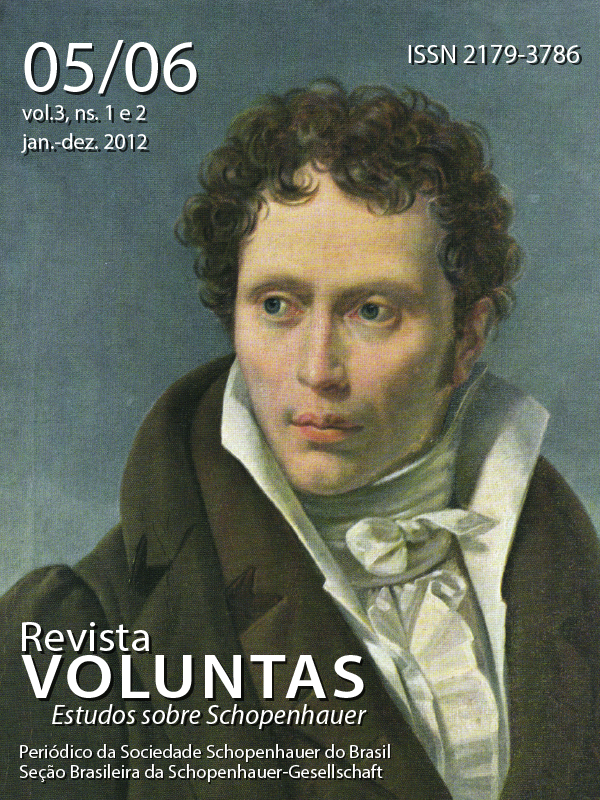Schopenhauer and the ties between will, intuition and rationality
DOI:
https://doi.org/10.5902/2179378634026Keywords:
Will, Intellect, UnconsciousAbstract
The human organism (Organismus) is, according to Schopenhauer, a manifestation of the Will and the body (Leib) Will objectified. Thus, there is a relationship dependent on the intellect in relation to Will. This appears opposite the psyche as the manifestation of an unconscious wish, and from that, the intellect is defined as a physical thing and conscious, in contrast to Will, which is metaphysical and unconscious. Rationality is an aspect of the human psyche and not its foundation. More fundamental is the understanding afforded by intellectual intuition, that really captures and shapes the world through basic a priori forms of time, space, and causality. In the background of intellectual intuitions and conceptual abstractions, however, are affective aspects, which effectively direct the intellect and determine placement psychic front of effectiveness.Downloads
References
SCHOPENHAUER, A. Sämtliche Werke, Band II, Die Wille als Wille und Vorstellung, II. Stuttgart/Frankfurt am Main: Cotta-Insel , 1960.
FREUD, S. Das Ich und das Es. In: Die S. Freud Studienausgabe, Bd. 5. S. Fischer Verlag, 1980. Org. 11 vols., Munique, DTV/ de Gruyter, 2ª ed., 1999.
Downloads
Published
How to Cite
Issue
Section
License
The submission of original manuscripts to this journal implies the transference, by the authors, of the copyrights for printed and digital publication. The copyrights of a published manuscript belong ultimately to the author, and only the copyright for its first publication is reserved to the journal. Authors may only use the same results in other publications explicitly indicating this journal as the medium of the original publication.
Licence
Attribution-NonCommercial-ShareAlike 4.0 International (CC BY-NC-SA 4.0) - This license lets others remix, tweak, and build upon your work non-commercially, as long as they credit you and license their new creations under the identical terms.






